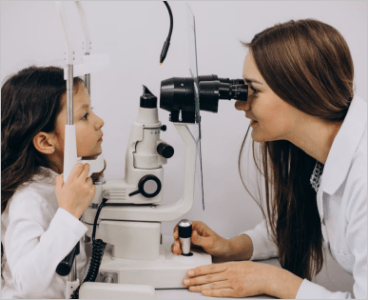Ayushman Bharat Health Mission
Vikas The Concept School
School Health Care Program
Prioritising Health and Well-Being
Ministry of Human
Resource Development
Government of India
Ministry of Health
and Family Welfare
Government of India
Comprehensive Program Components
A. Comprehensive Health Screenings
Each school year will begin with complete health screenings for all students, including vision, hearing, dental health, and Body Mass Index (BMI) assessments. Additionally, we will monitor each student's growth chart to track their development over the years like :
| Age Group In Years | Check-Up Type | Frequency |
|---|---|---|
| Early Chidhood (3 to 6) | Pediatric Check-Ups | Every 6 months |
| Vision Screening | Annually | |
| Hearing Screening | Annually | |
| Behavioral And Developmental | Annually | |
| Middle Chidhood (7 to 11) | Regular Check-Ups | Annually |
| Vision Screening | Annually | |
| Hearing Screening | Annually | |
| Obesity Risk and Life Style Screenings | Annually | |
| Dental Check-Ups | Every 6 months | |
| Adoiescence Chidhood (12 to 18) | Regular Physical Exams | Annually |
| Mental Health Screenings | Annually | |
| Hearing Screening | Annually | |
| Substance Use Assessments | Annually | |
| Vision Screening | Annually | |
| Sexual Health | Annually | |
| Dental Check-Ups | Every 6 months |
B. Comprehensive Nutritional Screenings
Nutrition assessment is an important component of a comprehensive school health care program. It helps identify the nutritional needs and status of students, enabling appropriate interventions to promote their health and well-being
| Seria l No. | Assessment Point | Description |
|---|---|---|
| 1 | Dietary Intake | Understand the types of food, meal frequency, and portion sizes consumed by the student. |
| 2 | Food Preferences and Restrictions | Identify any food allergies, intolerances, or specific dietary habits. |
| 3 | Anthropometric Measurements | Regularly track height and weight to monitor growth and ensure it aligns with healthy standards for the child's age and sex. |
| 4 | Physical Activity | Assess the student's level of physical activity in relation to their dietary intake |
| 5 | School Meal Programs | Evaluate the nutritional quality of food provided through school meal programs. |
| 6 | Health Education | Confirm whether nutritional education is integrated into the school curriculum. |
| 7 | Medical History | Take note of any chronic conditions like diabetes, asthma, or food allergies that could affect nutritional needs. |
| 8 | Physical Appearance | Observe signs of nutritional deficiency like frequent fatigue, poor skin health, or delayed growth. |
| 9 | Social Factors | Understand family food security, socio- economic status, and cultural dietary practices. |
| 10 | Behavioral Factors | Monitor eating behaviors, attitudes towards food, and signs of eating disorders. |
C. Empowering - Health Education Workshops
Our monthly health education workshops will delve into diverse areas such as nutrition, physical activity, personal hygiene, and disease prevention. For older students, we will include sex education workshops, presenting age-appropriate, scientifically accurate information, and fostering a mature understanding of sexual health.
D. On-Site Counselling Services
Our monthly health education workshops will delve into diverse areas such as nutrition, physical activity, personal hygiene, and disease prevention. For older students, we will include sex education workshops, presenting age-appropriate, scientifically accurate information, and fostering a mature understanding of sexual health.
E. Physical Activities for All
Regular exercise is critical for physical health and academic performance. We will integrate varied physical activities, including sports, games, yoga, and aerobics, to encourage a culture of fitness and health.
F. Immunisation Campaigns
In collaboration with local health authorities, we will organise annual immunisation campaigns. These will include all age-appropriate vaccinations, with a special emphasis on the HPV vaccine for older students, given its importance in preventing certain types of cancers.
Create Ayushman Bharat
Health Account
ABHA (Health ID) Card
A joint initiative of Ministry of Health & Family welfare & Ministry of Human resources with association of Cad care Aid Foundition




